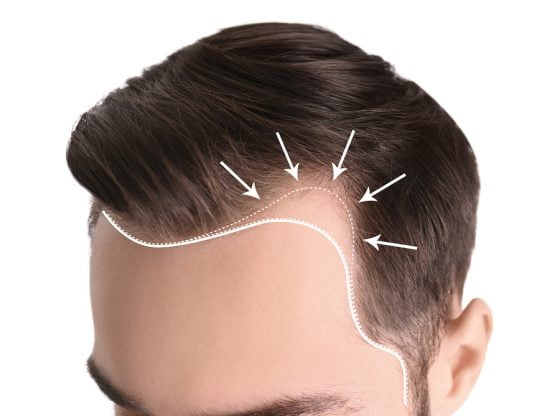Many people view healthy-looking hair as a sign of health or beauty. Like any other part of your body, hair needs a variety of nutrients to be healthy and grow (1Trusted Source).

In fact, many nutritional deficiencies are linked to hair loss.
While factors such as age, genetics and hormones also affect hair growth, optimal nutrient intake is key. Below are 5 vitamins and 3 other nutrients that may be important for hair growth.
1. Vitamin A
All cells need vitamin A for growth. This includes hair, the fastest growing tissue in the human body.
Vitamin A also helps skin glands make an oily substance called sebum. Sebum moisturizes the scalp and helps keep hair healthy (2Trusted Source).
Diets deficient in vitamin A may lead to several problems, including hair loss (3Trusted Source).
While it’s important to get enough vitamin A, you don’t want too much. Studies show that too much vitamin A can also contribute to hair loss (4Trusted Source).
Sweet potatoes, carrots, pumpkins, spinach, and kale are all high in beta-carotene, which is turned into vitamin A.
Vitamin A can also be found in animal products such as milk, eggs, and yogurt. Cod liver oil is a particularly good source.
2. B vitamins
One of the best known vitamins for hair growth is a B vitamin called biotin. Studies link biotin deficiency with hair loss in humans (5Trusted Source).
Although biotin is used as an alternative hair loss treatment, those who are deficient have the best results. However, deficiency is very rare because it occurs naturally in a wide range of foods. There’s also a lack of data about whether biotin is effective for hair growth in healthy individuals.
Other B vitamins help create red blood cells, which carry oxygen and nutrients to the scalp and hair follicles. These processes are important for hair growth.
You can get B vitamins from many foods, including:
whole grains
almonds
meat
fish
seafood
dark, leafy greens
Additionally, animal foods are the only good sources of vitamin B12. So if you’re following a vegetarian or vegan diet, consider taking a supplement.
3. Vitamin C
Free radical damage can block growth and cause your hair to age. Vitamin C is a powerful antioxidant that helps protect against the oxidative stress caused by free radicals (6Trusted Source).
In addition, your body needs vitamin C to create a protein known as collagen — an important part of hair structure.
Vitamin C also helps your body absorb iron, a mineral necessary for hair growth.
Strawberries, peppers, guavas, and citrus fruits are all good sources of vitamin C.
4. Vitamin D
Low levels of vitamin D are linked to alopecia, a technical term for hair loss (7Trusted Source).
Vitamin D is thought to play a role in hair production, but most research focuses on vitamin D receptors. The actual role of vitamin D in hair growth is unknown.
That said, most people don’t get enough vitamin D. It may still be a good idea to increase your intake.
5. Vitamin E
Similar to vitamin C, vitamin E is an antioxidant that can help prevent oxidative stress.
In one study, people with hair loss experienced a 34.5% increase in hair growth after supplementing with vitamin E for 8 months (8Trusted Source).
The placebo group had only a 0.1% increase (8Trusted Source).
Sunflower seeds, almonds, spinach, and avocados are all good sources of vitamin E.
6. Iron
Iron helps red blood cells carry oxygen to your cells. This makes it an important mineral for many bodily functions, including hair growth.
Iron deficiency, which causes anemia, is a major cause of hair loss. It’s especially common in women (9Trusted Source, 10Trusted Source, 11Trusted Source, 12Trusted Source).
Foods high in iron include clams, oysters, eggs, red meat, spinach, and lentils.
[“source=healthline”]
